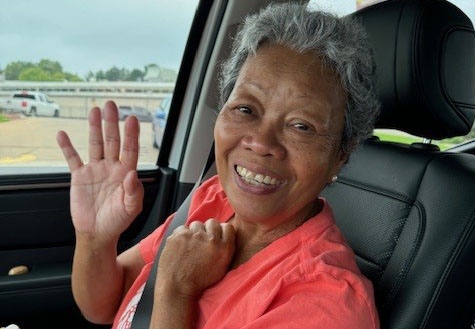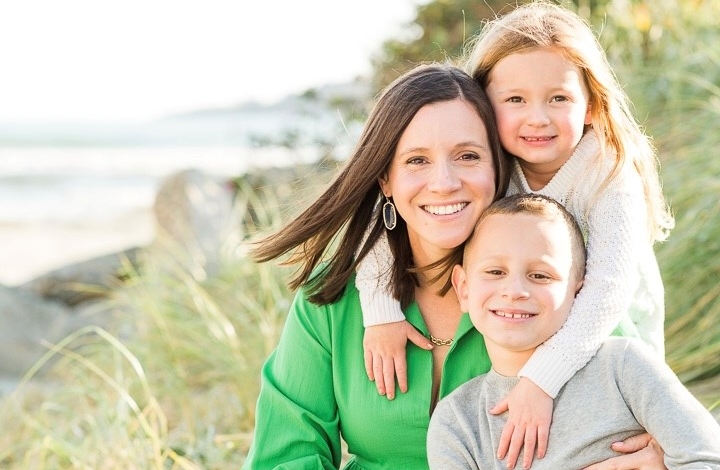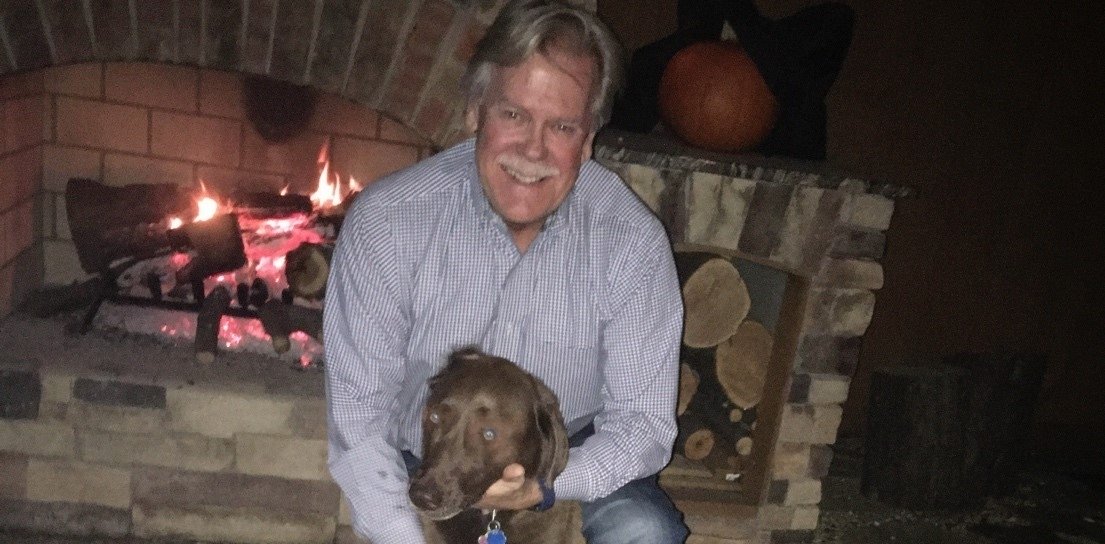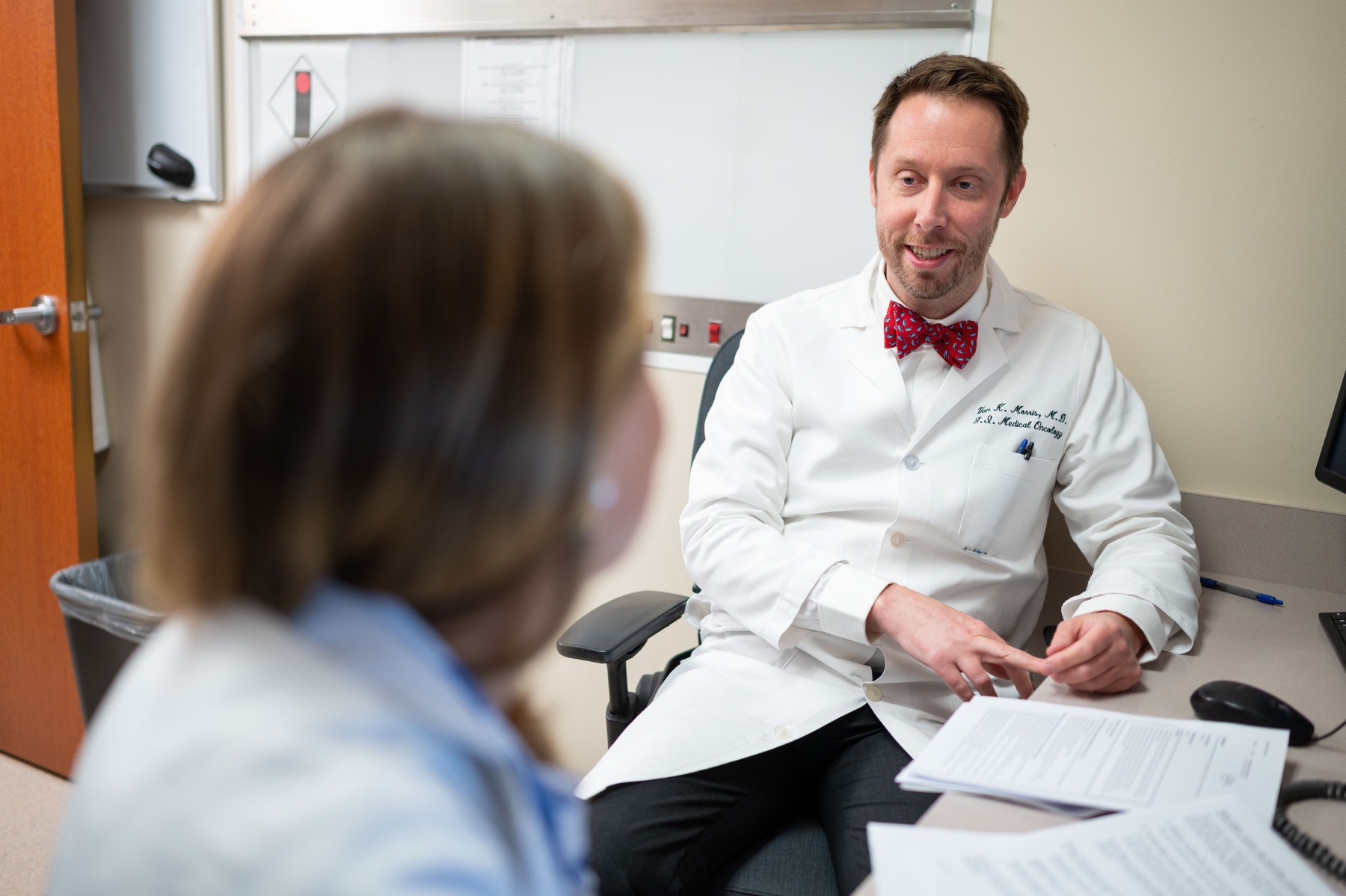Clinical trial was right choice for me
- Diseases
- Acoustic Neuroma (14)
- Adrenal Gland Tumor (24)
- Anal Cancer (68)
- Anemia (2)
- Appendix Cancer (16)
- Bile Duct Cancer (26)
- Bladder Cancer (72)
- Brain Metastases (28)
- Brain Tumor (234)
- Breast Cancer (718)
- Breast Implant-Associated Anaplastic Large Cell Lymphoma (2)
- Cancer of Unknown Primary (4)
- Carcinoid Tumor (8)
- Cervical Cancer (162)
- Colon Cancer (166)
- Colorectal Cancer (118)
- Endocrine Tumor (4)
- Esophageal Cancer (44)
- Eye Cancer (36)
- Fallopian Tube Cancer (8)
- Germ Cell Tumor (4)
- Gestational Trophoblastic Disease (2)
- Head and Neck Cancer (14)
- Kidney Cancer (128)
- Leukemia (342)
- Liver Cancer (50)
- Lung Cancer (286)
- Lymphoma (278)
- Mesothelioma (14)
- Metastasis (30)
- Multiple Myeloma (100)
- Myelodysplastic Syndrome (60)
- Myeloproliferative Neoplasm (6)
- Neuroendocrine Tumors (16)
- Oral Cancer (100)
- Ovarian Cancer (174)
- Pancreatic Cancer (160)
- Parathyroid Disease (2)
- Penile Cancer (14)
- Pituitary Tumor (6)
- Prostate Cancer (148)
- Rectal Cancer (58)
- Renal Medullary Carcinoma (6)
- Salivary Gland Cancer (14)
- Sarcoma (238)
- Skin Cancer (296)
- Skull Base Tumors (56)
- Spinal Tumor (12)
- Stomach Cancer (64)
- Testicular Cancer (28)
- Throat Cancer (92)
- Thymoma (6)
- Thyroid Cancer (98)
- Tonsil Cancer (30)
- Uterine Cancer (84)
- Vaginal Cancer (18)
- Vulvar Cancer (22)
- Cancer Topic
- Adolescent and Young Adult Cancer Issues (20)
- Advance Care Planning (12)
- Biostatistics (2)
- Blood Donation (18)
- Bone Health (8)
- COVID-19 (360)
- Cancer Recurrence (120)
- Childhood Cancer Issues (120)
- Clinical Trials (630)
- Complementary Integrative Medicine (22)
- Cytogenetics (2)
- DNA Methylation (4)
- Diagnosis (232)
- Epigenetics (6)
- Fertility (62)
- Follow-up Guidelines (2)
- Health Disparities (14)
- Hereditary Cancer Syndromes (126)
- Immunology (18)
- Li-Fraumeni Syndrome (8)
- Mental Health (116)
- Molecular Diagnostics (8)
- Pain Management (62)
- Palliative Care (8)
- Pathology (10)
- Physical Therapy (18)
- Pregnancy (18)
- Prevention (926)
- Research (390)
- Second Opinion (76)
- Sexuality (16)
- Side Effects (612)
- Sleep Disorders (10)
- Stem Cell Transplantation Cellular Therapy (216)
- Support (402)
- Survivorship (322)
- Symptoms (182)
- Treatment (1786)
Lung cancer survivor credits clinical trial for life
3 minute read | Published November 07, 2016
Medically Reviewed | Last reviewed by an MD Anderson Cancer Center medical professional on November 07, 2016
Georgia Dominick’s journey to MD Anderson began with unusual chest pains on what had begun as a normal August day in 2014.
“It was very strange,” she says. “It started kind of near my heart, and felt like when I had pleurisy, which I’ve had a couple of times because I also have asthma. But I went to work that day feeling perfect, and it just kept getting worse and worse.”
Georgia went to see her local internist immediately. He sent her to a pulmonologist, who did a bronchoscopy. The pulmonologist saw something suspicious and performed a biopsy. He also referred Georgia to an oncologist, who did a more complicated scoping procedure while she was under anesthesia. The results revealed she had stage IV metastatic non-small-cell lung carcinoma.
“Honestly, I think God sent me to the doctor that day,” Georgia says, “because lung cancer doesn’t usually hurt like that.”
Seeking a second opinion
After Georgia’s original lung cancer diagnosis, she got more shocking news: her oncologist told her that she had only a year left to live.
“I did not care for that prognosis,” Georgia says.
So, Georgia came to MD Anderson on the advice of a colleague. Here, she met with Frank Fossella, M.D., and John V. Heymach, M.D., Ph.D., and underwent additional diagnostic testing to better assess her cancer.
“I was diagnosed in mid-August, and I was being seen at MD Anderson by mid-September,” Georgia recalls. “It was very easy.”
Exploring clinical trials at MD Anderson
Once here, Georgia was asked right away to consider an immunotherapy clinical trial for her exact type of cancer. In October, she became the last person to join the clinical trial and began receiving a combination of three drugs: carboplatin, paclitaxel and one that was then known only as MK-3475 (now called Pembrolizumab).
After four treatments of all three drugs together, Georgia stopped taking the first two. But she has continued to receive Pembrolizumab once every three weeks since. She is now two years post-diagnosis.
“By Jan. 15, 2015, I was considered virtually cancer-free, and I’ve been in remission ever since,” Georgia says. “So on a scale of 1 to 10, I’m a 30. I couldn’t be happier or more pleased.”
Side effect proves unexpectedly liberating
Other than some occasional fatigue and joint pain, Georgia hasn’t experienced any lingering side effects from her clinical trial treatment.
“Any time you have this many drugs in you, it’s going to affect you,” Georgia says. “But it’s not debilitating, and it’s something I’ve gotten used to. I have not missed any work except to travel to and from MD Anderson.”
Like many patients, Georgia also lost all of her hair at some point during chemotherapy. But unlike some patients, she found the experience liberating.
“Being bald was one of my very favorite things,” she says. “My hair didn’t frizz, it wasn’t limp, and it made it super-quick to go to work. I could roll the windows down and not have to worry about it. It was fabulous. Being bald did not bother me one tiny bit.”
Sharing the good news about MD Anderson and clinical trials
Today, Georgia tells everyone she meets about her positive experience at MD Anderson.
“Sometimes, people look at me funny when I say this, but overall, it’s been a wonderful experience,” she says. “A lot of that has to do with the doctors and nurses. You really get the sense that they care about you, and that makes all the difference in the world.”
Georgia also encourages other MD Anderson patients to consider clinical trials if they are offered.
“MD Anderson and the clinical trial saved my life,” Georgia says. “And for that, I am thankful every day. But it is also very rewarding to be involved in something so big and cutting-edge. I believe this is going to save thousands of lives. And someday, when immunotherapy becomes commonplace, I’ll look back on this experience and think to myself, ‘I was a part of making that happen.’”
Related Cancerwise Stories

It is very rewarding to be involved in something so big and cutting-edge.
Georgia Dominick
Survivor






